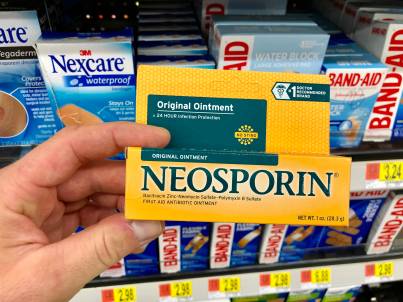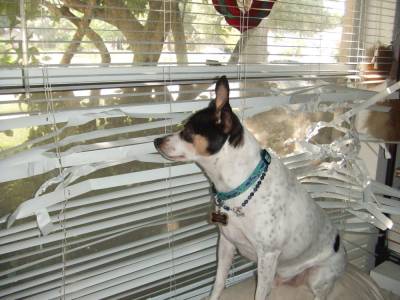Do you enjoy putting hot sauce on your food? Then we’re glad you’re here! Hot sauce can be a yummy addition to your food. For one thing, it can add flavor and some spiciness to bland foods.
Connect with a verified veterinarian in minutes. Licensed vets are available 24/7 to answer your questions. No need to worry about your furry family member.
But if you have a dog, then you’ll need to read this article on whether or not hot sauce is safe for your fur baby.
What is Hot Sauce?
Hot sauce is a spicy sauce that was first developed in southern Mexico about 7000 BC. So, it’s been around for a long while! Hot sauce is made with chilies, which have medicinal value, as well as being tasty.
Hot sauce ingredients generally include vinegar, citrus juice (lime, lemon, or another fruit), chili peppers, salt, seasonings, and vegetables. One of the hottest sauces around is Sriracha. This hot sauce contains garlic, chili peppers, distilled vinegar, sugar, and salt.
While hot sauce is safe for humans, is it safe for your dog? Can dogs even taste spicy foods?
Can Dogs Taste Spicy Foods?
Dogs have a more developed sense of smell than we do. That’s why our fur babies are always sniffing around to find food, follow an animal’s tracks, etc. However, a dog’s sense of taste is not as well-developed as our own. That’s because dogs don’t have as many taste buds as we do. Humans have around 9,000 taste buds, while dogs have about 1,700. That means that dogs can’t taste everything we can.
Dogs can tell the difference between sweet, sour, bitter, and salty. However, they must also rely on their sense of smell to determine if they should (or should not) eat something. This is why spicy food can be dangerous for our canine companions.

Review symptoms, medications & behavior to keep your pets healthy with a Vet Online in just minutes.
Ask a Vet Live NowHot Sauce and Dogs
Is hot sauce recommended for dogs? No, hot sauce is not recommended for dogs. For one thing, most dogs don’t really like spicy flavors. Hot sauce can also cause some digestive issues, which can include vomiting and diarrhea.
In addition, chili peppers (hot peppers) are not good for dogs. This ingredient can cause the digestive problems we just mentioned. And if the hot sauce contains garlic, that’s not good for your dog, either. Garlic is toxic for dogs. Some hot sauces also include onion, which is also a known toxin for dogs.
What to Do If Your Dog Eats Hot Sauce?
If your fur baby happens to lap up a little drop of hot sauce, in most cases he’ll be just fine. However, if he ingests more of the spicy liquid, then he may experience digestive issues. In that case, you may want to call the vet and get their advice on how to care for your dog.
In most cases, you probably won’t need to head to the vet’s office. But definitely call the vet if you have any concerns, or if your dog develops worsening symptoms. It’s always better to be on the safe side by calling the vet.
The Vet May Suggest These Methods to Help Your Dog
Depending on the amount of spicy food your dog’s eaten and his symptoms, the vet may suggest trying these remedies at home:
Ensure your dog has access to lots of fresh water. In addition, yogurt or milk may also cool your pup’s mouth down. Just give him a spoonful of yogurt or milk to help him feel better.
It’s also important to make sure your dog’s paws and skin are clean of the spicy food. If he has sauce on his paws, make sure to wash them with cold water. This not only cleans your dog’s fur of the spicy food but also keeps him from spreading the sauce to his face and eyes.
You’ll also need to monitor your dog for diarrhea and vomiting, which are common after eating spicy food. If these symptoms last longer than 12 to 24 hours, call the vet right away.
The vet may also recommend feeding your canine companion a bland diet for a few days. A bland diet may consist of plain cooked chicken or white fish, and a small amount of cooked white rice. Avoid putting any seasonings on the food; your fur baby needs to have a bland diet now to heal and feel better. Monitor your dog for any symptoms and call the vet right away if you have concerns.
In the future, avoid giving your dog any foods that have hot sauce in them. It’s just better for him without the sauce. If he seems keen on what you’re eating, then fix him a small portion that doesn’t contain the sauce. Then you can both enjoy the food together, without your fur baby getting sick!
Connect with a verified veterinarian in minutes. Licensed vets are available 24/7 to answer your questions. No need to worry about your furry family member.

Julie
Julie is a graduate of the University of North Carolina, Wilmington, where she studied Animal science. Though contrary to the opinion of her parents she was meant to study pharmacy, but she was in love with animals especially cats. Julie currently works in an animal research institute (NGO) in California and loves spending quality time with her little cat. She has the passion for making research about animals, how they survive, their way of life among others and publishes it. Julie is also happily married with two kids.
Review symptoms, medications & behavior to keep your pets healthy with a Vet Online in just minutes.
Ask a Vet Live Now




